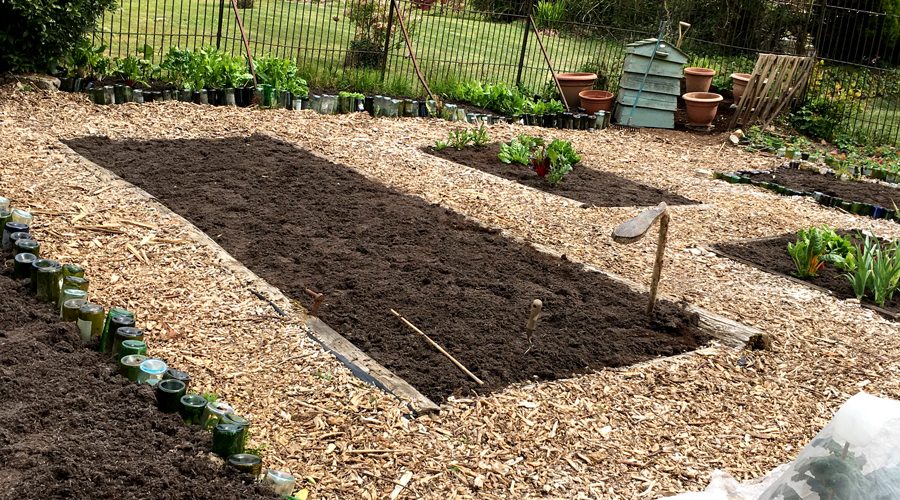At this time of year, I always find myself getting reflective about my veg patch; there are enough glimmers of spring that my mind turns towards the growing season, but it’s still wintry enough that I don’t push myself to do much other than contemplate what I will do differently, what I will grow and where I will plant things. This week, this kind of thinking has been very present, and here are the three things that I’ve come up with:
Don’t try to force nature to stick to your calendar
Each season is different, and over the past few years there have been unexpected shifts in the way the growing season has played out. I’ve recently had mizuna plants start bolting in late December, well before spring has arrived. Equally, I was harvesting beans very late on into autumn last year. I think that what is important is to go with the flow, to respond to how things are growing rather than expecting the plants to stick to the ‘normal’ garden schedule.
The way to be more responsive is to regularly spend time pottering in the veg garden so that you can observe how things are growing. I honestly think that spending even ten minutes a week just looking at plants to see how they’re getting on will help you to grow better veggies, and I don’t mean spending ten minutes pulling up weeds while you’re thinking about all the many things that are on your mind and to-do list. I mean actively looking at plants – looking at the colour of the leaves to see if they’re healthy, looking to see if there are signs of pest damage or disease, or for slow growth or rapid growth. If you’re there noticing what’s going on, you can care for your plants better, knowing when they might need a liquid feed or if aphids are building up and so on.
Mulch
Okay, I know I have a tendency to bang on about growing using the no-dig method (if you haven’t yet been subjected to my no-dig articles, there are some below!) but I really genuinely believe that heavy mulching using good quality compost (bought or homemade) makes a HUGE difference to how things grow – the plants have access to more nutrients, weeds are less prolific, the soil is protected from wind, sun, frost and so on, and it just makes sense to mimic nature by covering the soil’s surface with mulch rather than digging it over.
Likewise, if you’re growing in pots and containers, use fresh compost at the start of spring rather than trying to re-use last year’s depleted compost.
Protect plants from day one
Something I have made a mistake with in the past is waiting until a problem – weather-related, pest-related or other – has become a problem before protecting the plants. If you can anticipate a little more, and do what you can to prevent problems from becoming problems in the first place then this will massively help. I think Rocket Gardens’ growing guide is really useful for this as it lays out things like plant spacings, where to plant things and gives suggestions for covering certain crops with netting. Below are my top recommendations for anyone who is new to growing veg:
- Protect from slugs and snails from day one – beer traps, a tidy plot, grit, copper tape etc (there are loads of suggestions on the Rocket Gardens website)
- When you plant out tender plug plants, keep them warm – I’ve made this mistake so often. I plant out confidently in early May, then there’s a cold spell and the courgettes, beans, squash and sweetcorn all get a bit battered! Nowadays I am a little wiser and cover these newly planted plugs with cloches that I’ve cut out of old lemonade bottles – I re-use them season after season and they act as mini greenhouses until the cold nights and strong winds of early spring are well and truly over.
- Use mesh netting – Rocket Gardens gives great advice about which plants to net, and my additional advice would be to get hold of some mesh netting before you plant out so that you can cover the plants as soon as they go in the ground.

